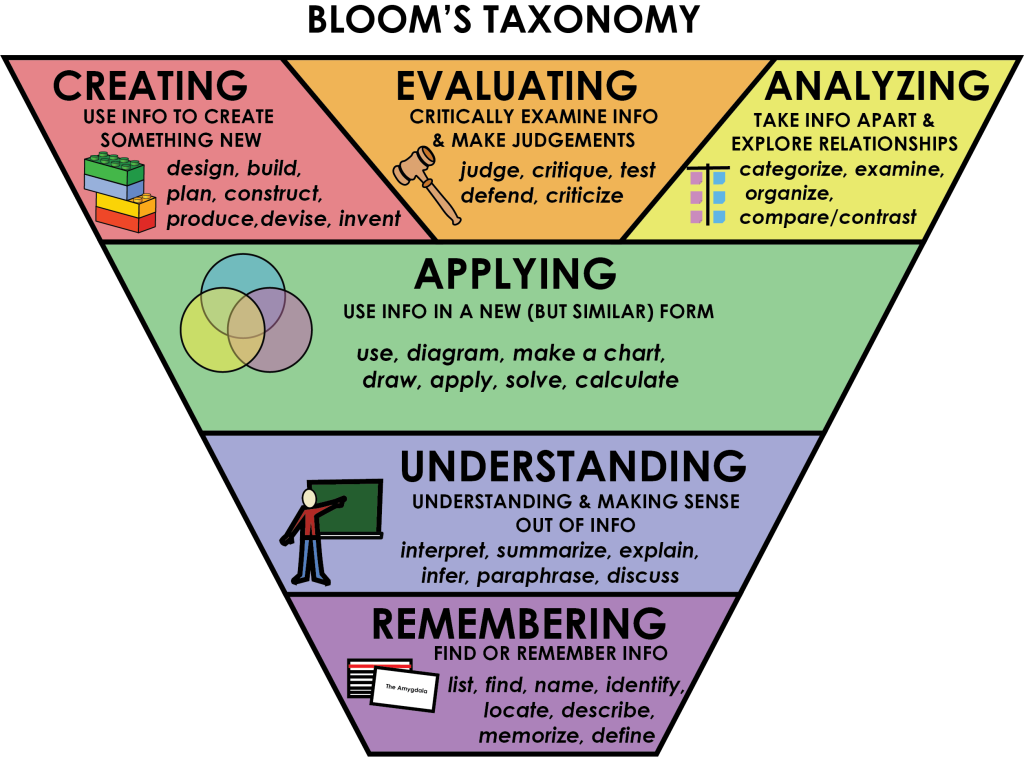4 Critical Questioning to Support Your Learning
Learning in an online environment requires you to move beyond simple memorization of course concepts. To gain knowledge that will support your growth as a lifelong learner and in your future career, you will want to interact with course concepts deeply and in ways that are personally relevant to you.
One way of picturing deeper learning is Bloom’s Taxonomy.

The levels of Bloom’s taxonomy build upon each other. While you need to be able to remember key concepts, your courses will spend more time developing your ability to apply, analyze, evaluate, and create using this knowledge. As you encounter new concepts, you will want to use critical questioning to understand the concepts at all levels, moving from surface to deeper knowledge.
One method for creating study questions or planning active learning activities is to move step-by-step through each level of Bloom’s Taxonomy.
- Begin with a few questions at the Remembering level. If you don’t yet know the technical language of the subject and what it means, it will be difficult for you to apply, evaluate, analyze, or be creative.
- Then, go deeper into your subject as you move through the levels. Learning at university requires you to learn the basics of your discipline by remembering and understanding; however, you will spend much more of your time applying, analyzing, evaluating, and creating.
Here is an example of what this might look like. What questions can you create for your topic?

Try It!
Create Study Questions Using Bloom’s Cognitive Taxonomy
Pick a subject area in which you are working. For each level of Bloom’s Taxonomy on this page:
- Develop a question and answer it to show that you can think about the material at that level. Use the example questions on the handout above as a guide.
- Think about how your questions would allow you to assess how much you know and what level you are working at.
Download a printable worksheet to complete this activity.
| Level | Question |
| Remembering | Remembering and Recalling information.
My question(s): |
| Understanding | Understanding Explaining ideas or concepts.
My question(s): |
| Applying | Applying information in a familiar situationMy question(s): |
| Analyzing | Analyzing by breaking information into parts to explore relationships.
My question(s): |
| Evaluating | Justifying a decision or course of action.
My question(s): |
| Creating | Generating new ideas, products, or ways of viewing things.
My question(s): |

